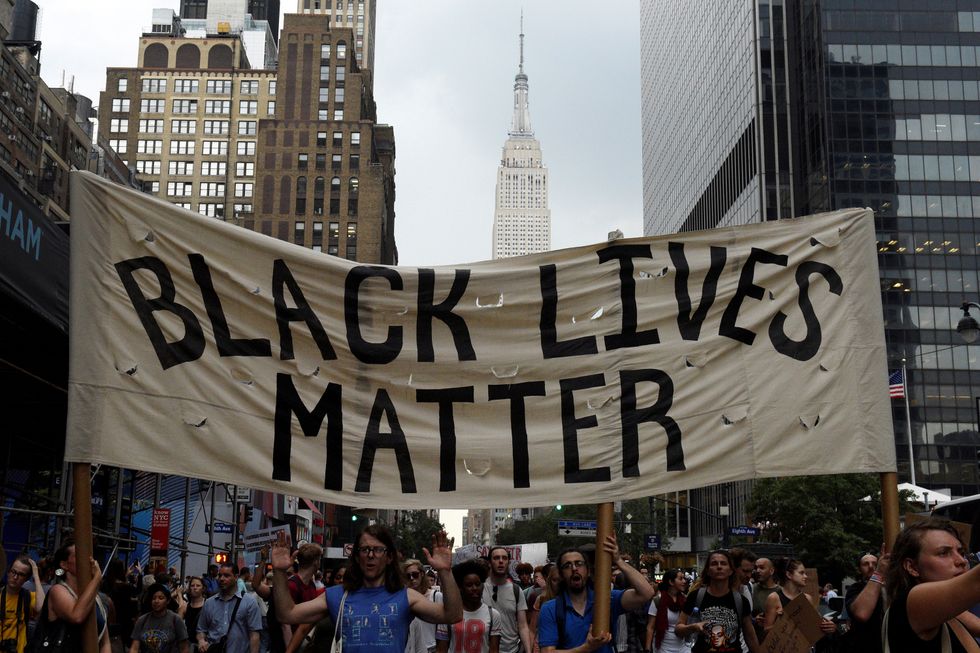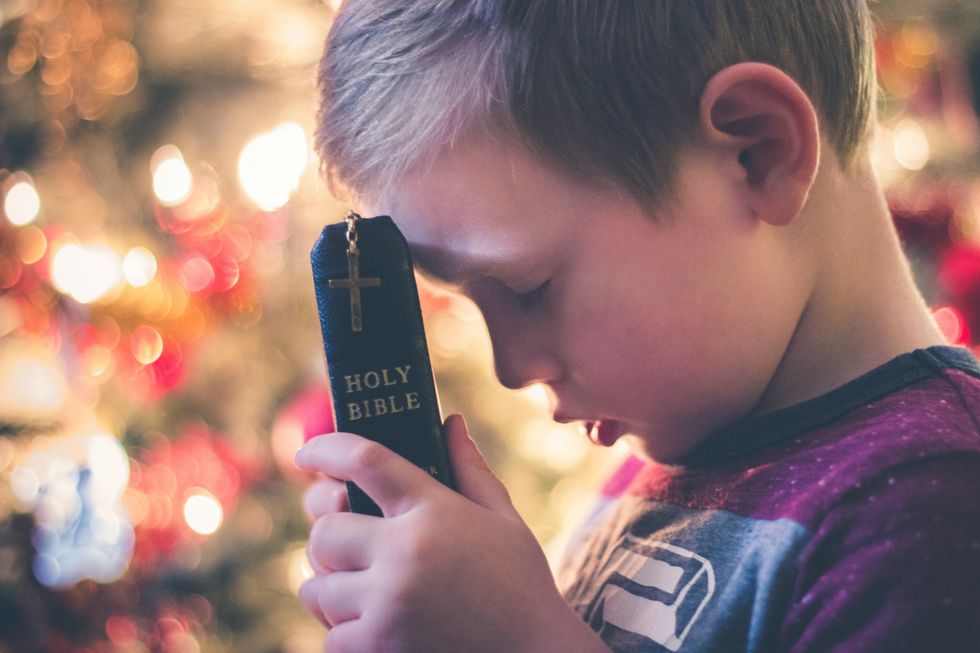This past week has been exhausting.
It started with the decision reached on Tuesday that Philando Castile’s killer would be walking free as he was not found guilty of even one count against him.
This is the same Philando Castile of whom there is video, not released to the public until after the trial, complying calmly and politely with the officer before getting shot with not one, not two, not three, but four fatal bullets. He bled out to death at the wheel of his car in front of his girlfriend and a 4-year-old child.
This is the same Philando Castile whose girlfriend proceeded to film herself on Facebook Live as she was being screamed at by the officer who had just callously ended her best friend’s young life right in front of her. She continued to speak to the officer with a level of calmness and respect, even ending every truncated remark with “sir," though the supposedly trained officer did not offer her the same level of respect.
This is also the same Philando Castile who worked with hundreds of children at his school and who had developed wonderful relationships with many of them.
The is the same Philando Castile to whom one of the children wrote a heart wrenching, emotionally devastating letter. It started, “This year I was going to give you a gift but then you dided but I’m giving you a gift anyway!”
The letter continued, “You hade the bigest heart ever I rlly miss you. I rlly rlly miss you. Your the best lunchman we could ever have I wish you were alive. You have rainbows in your heart!” [sic].
As if all of this wasn't enough, another acquittal also occurred recently, this time of (now-fired) officer Dominque Heaggan-Brown who shot and killed Sylville Smith.
The encounter, captured on bodycam, started with a gun-wielding Smith running from Brown. As he attempted to hop a fence, Smith was shot once and fell to the ground. He had thrown his gun over the fence before attempting the jump.
No one disputes that this was a justified shot. What happened next, however, is a reminder of the callousness with which we treat the lives of those who are being pursued by the cops. After being shot once, and falling to the ground, Smith, now unarmed, was shot again, this time fatally in the chest, just 1.69 seconds later.
Smith was just 23-years-old. His family was in tears as they watched their loved one die on video at the trial.
Finally, in my hometown of Cincinnati, the trial over the killing of Samuel Dubose ended in another hung jury and another mistrial. This time, jurors deliberated into their fifth day and were still unable to reach a decision.
In this case, there was also bodycam video and it is inexplicable, in my opinion, how any juror could come to the conclusion that the actions taken by Ray Tensing were justifiable. He shot and killed Samuel Dubose and later lied about having been dragged by Dubose’s car.
All of this was for the simple “crime” of not having a front license plate, a “crime” of which I and millions of other people are guilty, a crime which Tensing’s lawyer said during closing arguments made people “fair game for police.”
Many people across the country are, rightfully, outraged by the inherent injustices of these cases, particularly the murder of Philando Castile.
But these cases, as abhorrent as they are, do not reflect a malice or hatred present within the officers involved. These are not “bad apple” cases. Instead, they reflect a widespread callousness and uncaring with which we treat people pursued by the police and lack of importance we place on their bodies, lives, hopes, and dreams. To police departments, to juries, to us, they are nothing.
I do not think that any of the officers in the above shootings, nor in most of the police killings widely publicized over the last few years, were killing out of malice or hatred. I do not think they set out to be a cop in the hopes of killing someone, of watching the life drain from someone’s eyes.
In the videos showing the last moments of Castile and Dubose's lives, you can see and hear the distress present in the officers after firing their shots. In fact, Castile’s shooting officer screams “FUCK!”
What we see instead are officers who are not properly trained and who do not think of the people in front of them as people, but rather as threats, as criminals, as things to be controlled. Only after they are dead do we learn their names. Only after they are dead do we learn and care that they are fathers, sons, brothers, friends, husbands, neighbors, and beloved members of communities.
Cases of police brutality get the most coverage in the media, but State-sponsored violence occurs after arrests, too.
It happens when cops and guards beat prisoners. It happens with a wanton lack of regard for the mental health of people in jails, just awaiting their release on bail or awaiting a trial because they can’t afford bail.
It happened with a man who was kept in a jail cell awaiting trial. He had not even been convicted of a crime, and yet he was deprived of food and water for 7 days before he was found dead from dehydration. The sheriff of that department was not fired or even rebuked. Instead, he’s been given national security clearance.
Much can be said about the legality of many of these cases, whether the cops involved met the base legal barrier for being found not guilty. What cannot be argued, however, is whether these people, these human beings, deserved to die.
People have been killed over things as minute and inconsequential as a turn signal, playing with a toy gun, or “adjusting his pants.”
Something is clearly wrong with the system when these events become less tragic and instead more embedded everyday reality.
There have been so many lives cut short, so many relationships destroyed, so many dreams destroyed, and so much potential unrealized.
Black lives don't matter, at least not here, not in the United States. When black people die at the hands of police or through other means of State-sponsored violence, they become mere statistics. Their lives, once vibrant and complex, full of relationships and aspirations the same as any of us, become reduced to one event. An event in which they had zero control over what happened to them.
We reduce them to nothing because it makes it easier to justify their deaths, to make it out like nothing is wrong with our precious system, with our precious country. We reduce them to nothing to soothe our collective shame.



 Christmas and New Year gift card
Photo by
Christmas and New Year gift card
Photo by  butter cookies on plate
Photo by
butter cookies on plate
Photo by  boy holding Holy
boy holding Holy 












